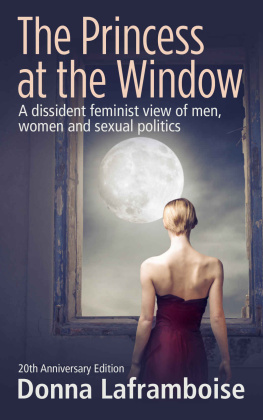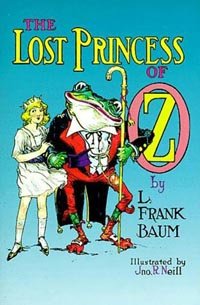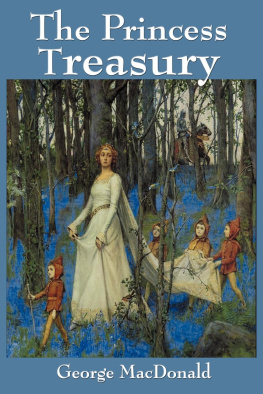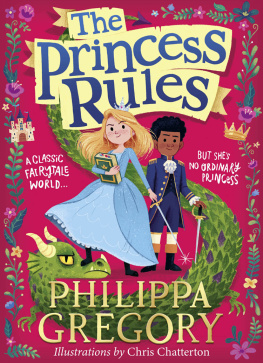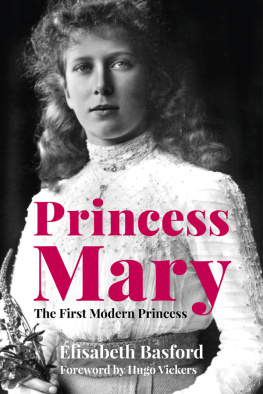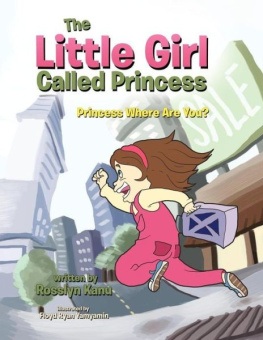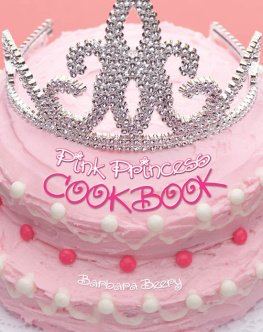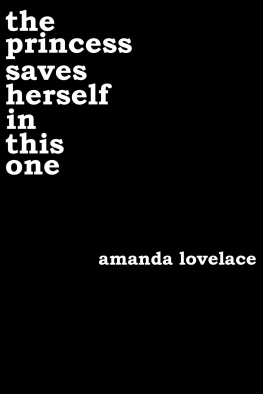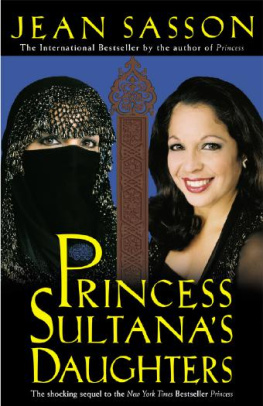Laframboise - The Princess at the Window
Here you can read online Laframboise - The Princess at the Window full text of the book (entire story) in english for free. Download pdf and epub, get meaning, cover and reviews about this ebook. year: 2016, publisher: Ivy Avenue Press, genre: Detective and thriller. Description of the work, (preface) as well as reviews are available. Best literature library LitArk.com created for fans of good reading and offers a wide selection of genres:
Romance novel
Science fiction
Adventure
Detective
Science
History
Home and family
Prose
Art
Politics
Computer
Non-fiction
Religion
Business
Children
Humor
Choose a favorite category and find really read worthwhile books. Enjoy immersion in the world of imagination, feel the emotions of the characters or learn something new for yourself, make an fascinating discovery.
- Book:The Princess at the Window
- Author:
- Publisher:Ivy Avenue Press
- Genre:
- Year:2016
- Rating:5 / 5
- Favourites:Add to favourites
- Your mark:
- 100
- 1
- 2
- 3
- 4
- 5
The Princess at the Window: summary, description and annotation
We offer to read an annotation, description, summary or preface (depends on what the author of the book "The Princess at the Window" wrote himself). If you haven't found the necessary information about the book — write in the comments, we will try to find it.
The Princess at the Window — read online for free the complete book (whole text) full work
Below is the text of the book, divided by pages. System saving the place of the last page read, allows you to conveniently read the book "The Princess at the Window" online for free, without having to search again every time where you left off. Put a bookmark, and you can go to the page where you finished reading at any time.
Font size:
Interval:
Bookmark:
2016 and 1996 by Donna Laframboise
ISBN: 978-1-894984-09-6
Ivy Avenue Press
Port Dover, Canada
IvyAvenue.com
for Alan , my husband and my best friend
Vaclav Havel
Donna Laframboise is a Canadian investigative journalist. She holds an undergraduate degree in Women's Studies from the University of Toronto. As a former vice president of the Canadian Civil Liberties Association, she is committed to free speech and to what librarians call intellectual freedom - the right of citizens to receive information from multiple points-of-view.
The Princess at the Window , Donna's first book, was published by Penguin in 1996. Between 1998 and 2001, she was a columnist, editorial board member, and feature writer for Canada's National Post newspaper. More recently, her work has appeared in venues as diverse as the Wall Street Journal and VancouverDesi .
Donna is the author of two books about the world's most important climate body, a UN organization called the Intergovernmental Panel on Climate Change (IPCC). In that context, she has been described by Germany's Der Spiegel as the IPCC's 'sharpest critic,' has testified before a committee of the British House of Commons, and has addressed audiences in Australia, Canada, France, Germany, Italy, Norway, Poland, and the UK.
Donna blogs at BigPicNews.com . She is the author of a 2016 report commissioned by the London-based Global Warming Policy Foundation. It explains that half of all published scientific literature may be wrong, including the climate research on which governments have been basing trillion-dollar decisions.
Table of Contents
PART 1 - Whither the Women's Movement?
PART 2 - Flinging Open New Windows
I.
During the dark days of Communism, there was a women's movement in the Soviet Union. But it was fake. Government controlled and approved, it was just another expression of the establishment.
The feminists who spoke truth to power were those who wrote clandestinely about forbidden topics - alcoholism, appalling maternity care, lack of access to birth control. These women paid a high price for their independent thought. Harassed and interrogated by the KGB, they were urged to think of their families. Some were exiled, reduced to the status of undocumented refugees the moment their citizenship papers were shredded.
People who challenged the Soviet establishment were known as 'dissidents.' Their minds were brave and free.
Twenty years ago I was part of a wave of North American dissidents who raised our heads above the parapet to challenge mainstream feminism. The women's movement has its own Party line. Rock stars such as Gloria Steinem, Susan Faludi, Naomi Wolf, Marilyn French, Robin Morgan, Catherine MacKinnon, and Andrea Dworkin were the establishment. From the pages of Ms . magazine, between the covers of bestsellers, and from the podiums of lucrative speaking gigs, they declared what was good - and bad - for women. Those of us who begged to differ were disparaged. Who were we to be commenting on such matters?
I have an undergraduate degree in women's studies from Canada's premier university, but thinking for myself was forbidden. As a journalist, I acknowledged that females are sometimes violent. I discussed how schools are failing boys. I championed free speech rather than censorship. I argued that unjust laws could not be supported, even if their intent was to help women. I took feminism to the next level by participating in grownup, nuanced conversations about the real world.
For this, I was dismissed as a 'backlash babe,' a 'feminist basher,' and an 'anti-woman writer.' Feminist icon Michele Landsberg compared me to a stripper in the pages of Canada's largest circulation newspaper, The Toronto Star . From behind the bulletproof glass of her impressive salary and union seniority, she ridiculed young, fledgling, dissident moi whose freelance earnings rarely rose above the poverty line - and who was advised, while on promotional tour for the book you are now reading, that The Toronto Star no longer required my once-weekly column.
In 1995, I pointed out that an upcoming conference had received $15,000 in government funding to talk about Satanic cults sexually abusing children, even though investigators on two continents had found no evidence that such a phenomenon existed. That was the first occasion in which I was compared to a Holocaust denier. It would not be the last.
A few years after the first edition of this book appeared, I wrote an expos of taxpayer-funded battered women's shelters and rape crisis centers. In a series of articles, I described profound problems in numerous facilities across Canada, including "financial disarray, weak accountability, criminal charges, lawsuits, mass resignations, and vicious infighting." One article revealed that outstanding fraud charges had not prevented a woman named Anne Marie Aikins from serving two terms as president of the Ontario Coalition of Rape Crisis Centres. My overarching point was that facilities that were supposed to be providing safe harbour were instead causing harm.
In response, Sally Armstrong, the feminist editor of a Canadian women's magazine, devoted an entire editorial to asking, in essence, how dare I? According to her, I was a member of an imaginary media cabal that regularly behaves "like scavengers, scratching the earth for garbage that may, if they get their tiresome tirades printed, bring the sisters down."
In Armstrong's opinion, I wasn't doing my job as an investigative reporter. I wasn't judging women-run facilities by the same standards that apply to everyone else. Nor was I helping to ensure that vulnerable women receive high-quality social services. Instead, I had penned a "thinly disguised assault on women's work."
Woman power sounds great. But diverge from the Party line and your feminist sisters will turn on you like a pack of wolves. You will be demeaned in overtly sexual terms. You moral compass will be compared to those who deny the historical annihilation of millions. You will be accused of writing sordid filth.
II.
A few years ago I received the kind of fan letter every writer dreams of. It was from a student at a prominent US college. He said he was halfway through the first edition of this book, which had been published around the time he was born:
wow, learning about feminist orthodoxy has helped me understand my campus climate even more, especially how certain individuals become powerful or belligerent by emphasizing their group status while denigrating perfectly respectable and progressive individuals...Thanks again for being a role model and a progressive thinker.
This student shall remain nameless because, incredibly, we are living through a period in which voicing unpopular opinions leads to serious grief. Bullying people into silence is now mistaken for bold feminist action. A distressing example took place in October 2016, attracting media attention around the globe.
Newspaper letters-to-the-editor sections have traditionally been a forum in which ideas are vigorously debated. Readers are exposed to a variety of viewpoints. Sarcasm and lighthearted banter appear in abundance. But after a tiny weekly (circulation 5,000), in a small Rhode Island community (population 16,000), published a satirical letter under the headline "Please, women, put away the yoga pants," its male author was targeted in an alarming manner.
This was a simple case of a private citizen expressing his personal opinion that yoga pants are unflattering when worn by those over the age of 20. The letter included the following: "What's next? Wearing a 'Speedo' to the supermarket? Imagine if men did that. Yuck!"
Font size:
Interval:
Bookmark:
Similar books «The Princess at the Window»
Look at similar books to The Princess at the Window. We have selected literature similar in name and meaning in the hope of providing readers with more options to find new, interesting, not yet read works.
Discussion, reviews of the book The Princess at the Window and just readers' own opinions. Leave your comments, write what you think about the work, its meaning or the main characters. Specify what exactly you liked and what you didn't like, and why you think so.

